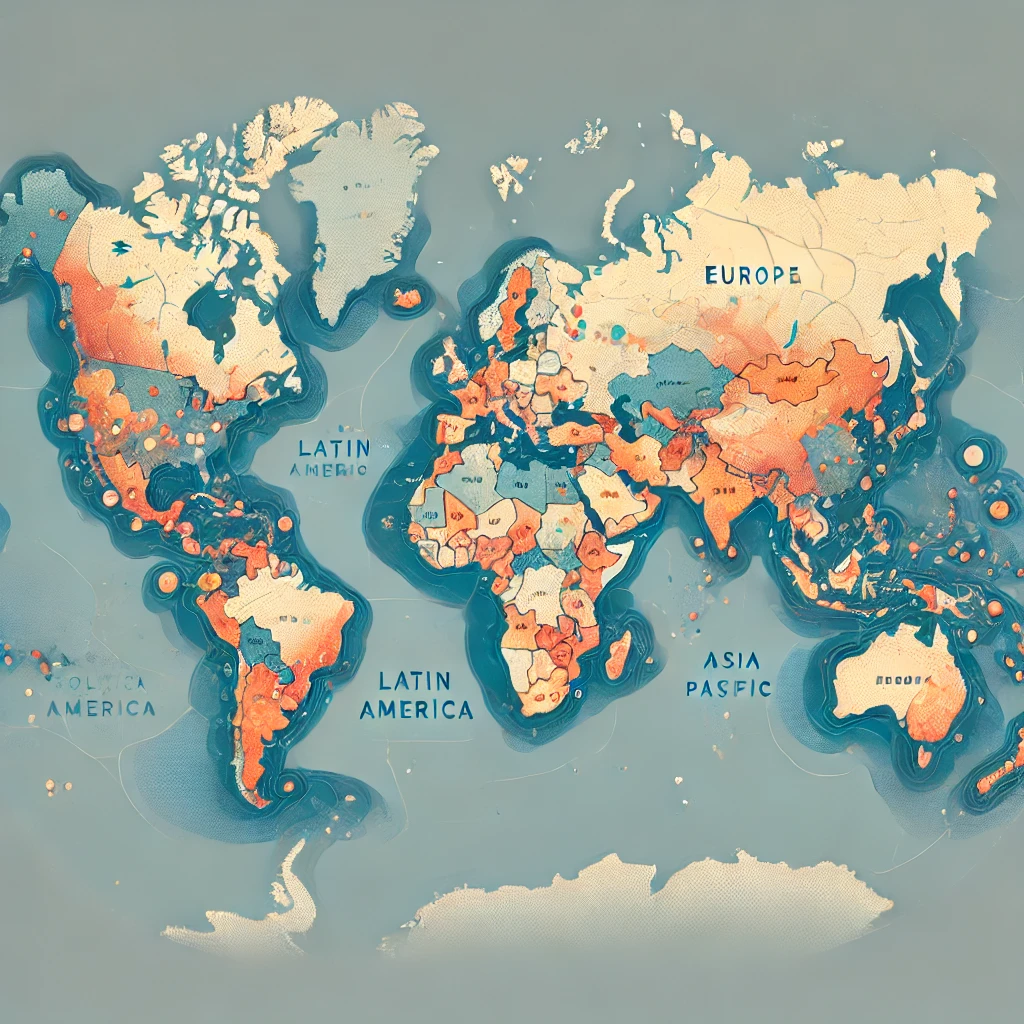January 2025 marks a critical moment on the international stage, with the inauguration of a new President of the United States. This transition brings the potential to reshape international relationships, adapt economic strategies, and influence policies in technology, environmental protection, and commerce. Beyond the United States, leadership changes in other regions are likely to affect Latin America and the broader global community, creating both challenges and opportunities.
The Dawn of a New U.S. Presidency
Why January 2025 Matters
The inauguration of a U.S. President is not just about leadership change—it’s a reset for the nation’s priorities. This moment can redefine domestic and international policies, shaping alliances, trade, and environmental commitments. The new administration offers a fresh start with the potential to address pressing global issues.
Key Policy Areas to Watch
Trade and Economics: Will the new administration pursue fresh trade agreements, or revise existing ones? Changes in tariff policies and globalization strategies will significantly affect businesses and investors.
Technology and Data Privacy: Emerging policies on artificial intelligence, cybersecurity, and data privacy could reshape the tech landscape.
Environmental Initiatives: The global community will closely monitor commitments to combat climate change, increase renewable energy investments, and promote sustainability.
Unity or Division?
The tone of the inaugural speech often sets the stage for an administration. A focus on unity and collaboration can inspire optimism, while divisive language might indicate a challenging road ahead. What vision will January 2025 unveil for the U.S. and the world?

Geopolitical Transformations Beyond the U.S.
The U.S. Impact on Global Dynamics
The United States holds significant sway in international politics. A new presidency can shift global power dynamics, prompting allies and competitors to adjust their strategies. Policies affecting NATO, the Asia-Pacific region, and global trade will be pivotal.
Latin America: Navigating Political Shifts
Latin America faces its own series of leadership transitions. Elections in countries like Brazil, Mexico, and Argentina will influence trade agreements, migration patterns, and regional stability. These changes could align or diverge from U.S. policies, shaping the region’s economic and political landscape.
Europe’s Strategic Response
European countries will reevaluate their relationships with the U.S., focusing on defense collaborations, trade negotiations, and shared environmental goals. The EU’s independent global influence may grow as a response to these shifts.
Opportunities for Businesses and Investors
Adapting to New Policies
Policy changes require businesses and investors to remain agile. Anticipating shifts in taxation, labor regulations, and trade agreements can help stakeholders mitigate risks and seize opportunities.
Identifying Emerging Markets
Leadership transitions often spotlight emerging markets. Stability and economic growth in certain regions could open new avenues for investment.
Innovation-Driven Opportunities
New policies around technology may catalyze markets for clean energy and advanced AI solutions. Businesses ready to innovate in these areas stand to gain.
The Role of Informed Global Citizens
Promoting Awareness and Accountability
Informed citizens play a vital role in shaping political outcomes. Understanding policies, participating in elections, and engaging in advocacy are critical for driving progress.
Collaboration Across Borders
Addressing global challenges like climate change requires international cooperation. Governments, corporations, and individuals must work together to create sustainable solutions.
Lessons for 2025
Adaptability in Times of Change: Political transitions bring uncertainty, but also opportunities for growth and innovation.
The Value of Partnerships: Strong collaboration between nations, businesses, and communities is essential for addressing shared challenges.
Empowerment Through Knowledge: Staying informed empowers individuals and organizations to navigate change effectively.
As 2025 begins, the world stands at a pivotal juncture. By embracing the opportunities that accompany political change and fostering collaboration, we can move forward with optimism and purpose in this transformative era.
Recommended Reading for Further Insight
Books offer a profound way to understand the complexities of political shifts and global dynamics. Here are two thought-provoking titles that provide valuable perspectives:
“Project 2025 Explained: An In-Depth Analysis of Conservative Strategies and Their Implications for Democracy“ — A thought-provoking examination of the political strategies shaping governance and their potential impacts on democratic systems
“How Democracies Die“ — A compelling examination of the vulnerabilities in democratic systems and lessons from history on preserving democracy.
Explore these titles to deepen your understanding of the critical themes discussed in this post and prepare for the transformative changes ahead.

